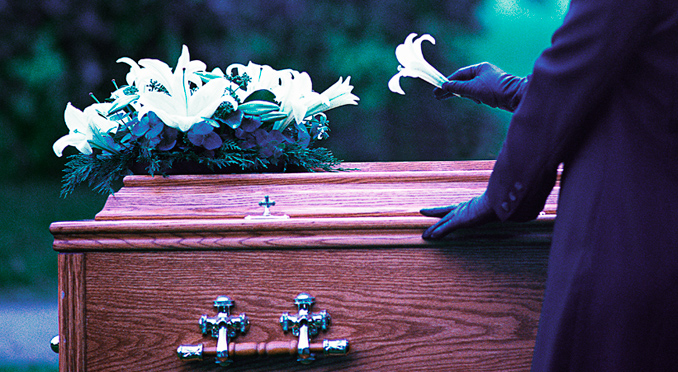CREMATION - AT NEED
OUR FAMILY SERVING YOURS, 24 hours a day, 365 days a year at (863) 421-4900
Cremation Services Of Mid Florida is an affordable alternative to high-priced funeral homes with our Direct Cremation Package #1 priced at only $795.00. Visit our Pricing page to see all of our available options.
When you see prices like $350, or $495 on other sites for cremation, that may be the price just for the process of cremation. Unfortunately, more often than not, these "low ball" prices are only designed to get you to call their business. Frequently, other fees are added on at the time of sale. Beware of fees added on for things like transportation, refrigeration, professional services, or government fees, etc.
We provide service to the Central Florida area and are available 24 hours a day including weekends and holidays. We are here to serve you with professional satisfaction to you and your family. Please call, stop by or fill out our contact form if you have any questions.
Contact Us if you any questions.
CREMATION SERVICES OF MID FLORIDA
FLORIDA LAWS PERTAINING TO CREMATION
The State of Florida has a very comprehensive regulation of cremation. There are several different chapters of current statutes that apply to the practice of cremation. For your convenience, we have listed the most commonly requested statutes below. These are only a few of the many statutes that serve to regulate cremation in Florida. For those who may want more information, the entire Florida Statutes can be referenced online at:
http://www.leg.state.fl.us/index.cfm?Mode=View%20Statutes&Submenu=1&Tab=statutes
497.607 Cremation; procedure required.—
(1) At the time of the arrangement for a cremation performed by any person licensed pursuant to this chapter, the person contracting for cremation services shall be required to designate her or his intentions with respect to the disposition of the cremated remains of the deceased in a signed
declaration of intent which shall be provided by and retained by the funeral or direct disposal establishment. A cremation may not be performed until a legally authorized person gives written authorization for such cremation. The cremation must be performed within 48 hours after a specified
time which has been agreed to in writing by the person authorizing the cremation.
(2) With respect to any person who intends to provide for the cremation of the deceased, if, after a period of 120 days from the time of cremation the cremated remains have not been claimed, the funeral or direct disposal establishment may dispose of the cremated remains. Such disposal shall include scattering them at sea or placing them in a licensed cemetery scattering garden or pond or in a church columbarium or otherwise disposing of the remains as provided by rule.
497.005 Definitions.--As used in this chapter:
37) "Legally authorized person" means, in the priority listed, the decedent, when written inter vivos authorizations and directions are provided by the decedent; the surviving spouse, unless the spouse has been arrested for committing against the deceased an act of domestic violence as defined in s. 741.28 that resulted in or contributed to the death of the deceased; a son or daughter who is 18 years of age or older; a parent; a brother or sister who is 18 years of age or older; a grandchild who is 18 years of age or older; a grandparent; or any person in the next degree of kinship. In addition, the term may include, if no family member exists or is available, the guardian of the dead person at the time of death; the personal representative of the deceased; the attorney in fact of the dead person at the time of death; the health surrogate of the dead person at the time of death; a public health officer; the medical examiner, county commission, or administrator acting under part II of chapter 406 or other public administrator; a representative of a nursing home or other health care institution in charge of final disposition; or a friend or other person not listed in this subsection who is willing to assume the responsibility as the legally authorized person. Where there is a person in any priority class listed in this subsection, the funeral establishment shall rely upon the authorization of any one legally authorized person of that class if that person represents that she or he is not aware of any objection to the cremation of the deceased's human remains by others in the same class of the person making the representation or of any person in a higher priority class.
872.03 Cremating human bodies; limitation.—
(1) It shall be unlawful for any person, firm, or corporation to cremate any dead human body prior to the expiration of 48 hours after the death of such human body.
497.601 Direct disposition; duties.—
(1) Those individuals licensed as direct disposers may perform only those functions set forth below:
(a) Remove human remains from the place of death and store human remains in registered direct disposal establishments.
(b) Secure pertinent information from the decedent's next of kin in order to complete the death certificate and to file for the necessary permits for direct disposition.
(c) Obtain the necessary permits for direct disposition and arrange for obituaries and death notices to be placed in newspapers; provided, however, that the name of the direct disposal establishment may not appear in any death notice or obituary if any funeral service, memorial service, or graveside service is to take place and such service is mentioned in the death notice or obituary.
(d) Refrigerate human remains prior to direct disposition and transport human remains to a direct disposal establishment for direct disposition.
(e) Contract with a removal service or refrigeration facility to provide such services or facilities to a direct disposal establishment.
(2) Direct disposers or funeral directors functioning as direct disposers may not, in their capacity as direct disposers, sell, conduct, or arrange for burials, funeral services, memorial services, visitations, or viewings; hold themselves out to the public as funeral directors; or use any name, title, or advertisement that may tend to connote that they are funeral directors. These prohibitions shall apply regardless of the fact that such individuals may be licensed as funeral directors.
(3) Provided that direct disposers limit their activities to those functions set forth in subsection (1), those activities shall not be deemed to constitute funeral directing or embalming or the functions performed by a funeral director or embalmer as otherwise set forth in this chapter.







